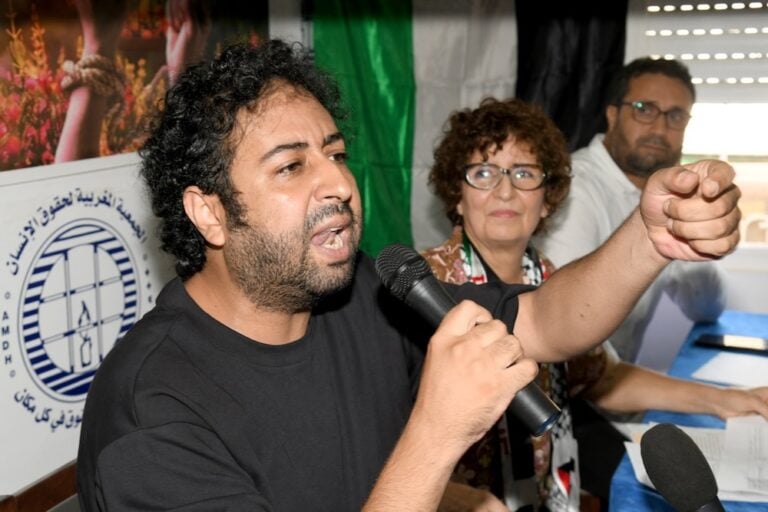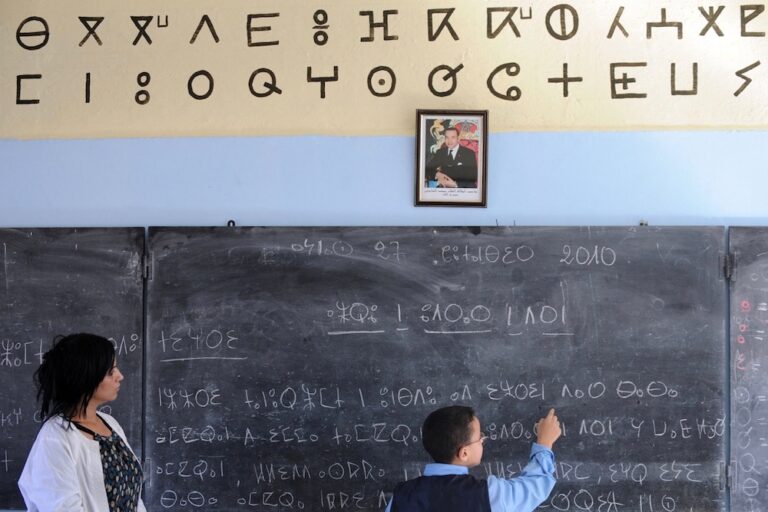(RSF/IFEX) – On 24 October 2002, RSF protested the Moroccan authorities’ refusal to allow two journalists to leave the country after they reported on a corruption scandal involving prominent politicians. “It appears that the regime’s old habits die hard,” said RSF Secretary-General Robert Ménard. “We call on the new prime minister, Driss Jettou, to see […]
(RSF/IFEX) – On 24 October 2002, RSF protested the Moroccan authorities’ refusal to allow two journalists to leave the country after they reported on a corruption scandal involving prominent politicians.
“It appears that the regime’s old habits die hard,” said RSF Secretary-General Robert Ménard. “We call on the new prime minister, Driss Jettou, to see to it that this kind of incident does not happen again. If the authorities want to pass judgment on journalists, let them follow the normal procedures.”
The two journalists, Ali Amar and Mouaad Rhandy, managing editor and reporter, respectively, for the weekly “Journal hebdomadaire”, were held by Moroccan police for three hours on 23 October at the border with the Spanish enclave of Ceuta, in northern Morocco. They were interrogated by intelligence officials about a report they wrote in the latest issue of their newspaper, and were told that they could not leave the country.
The report, which was published on 19 October, included an interview with Moulay Zine Zahidi, the former head of the financial company Credit Immobilier et Hotelier (CIH), who is currently on the run from police. It contained revelations about the day-to-day management of CIH, which is currently the focus of a parliamentary investigation involving several leading politicians.
The journalists were first brought before detectives who handed them a summons in connection with the Zahidi case. They were then interrogated by intelligence agents. “They searched our car from top to bottom, ripped out the seats and confiscated our mobile phones, our papers and our camera,” Amar told RSF. The newspaper’s publisher, Aboubakr Jamai, called the interrogation “outrageous” and said it should have been undertaken as part of a legal procedure.


